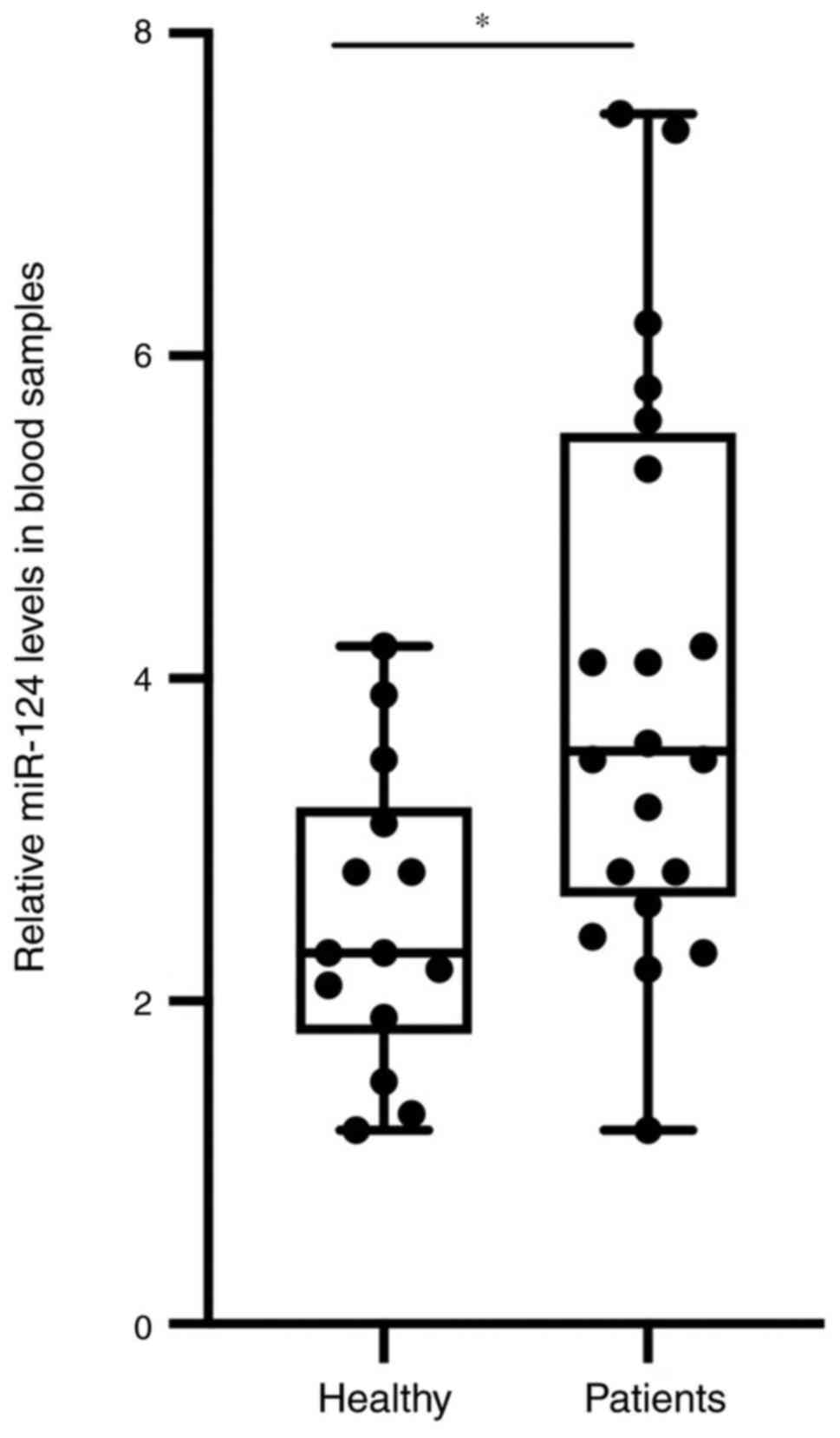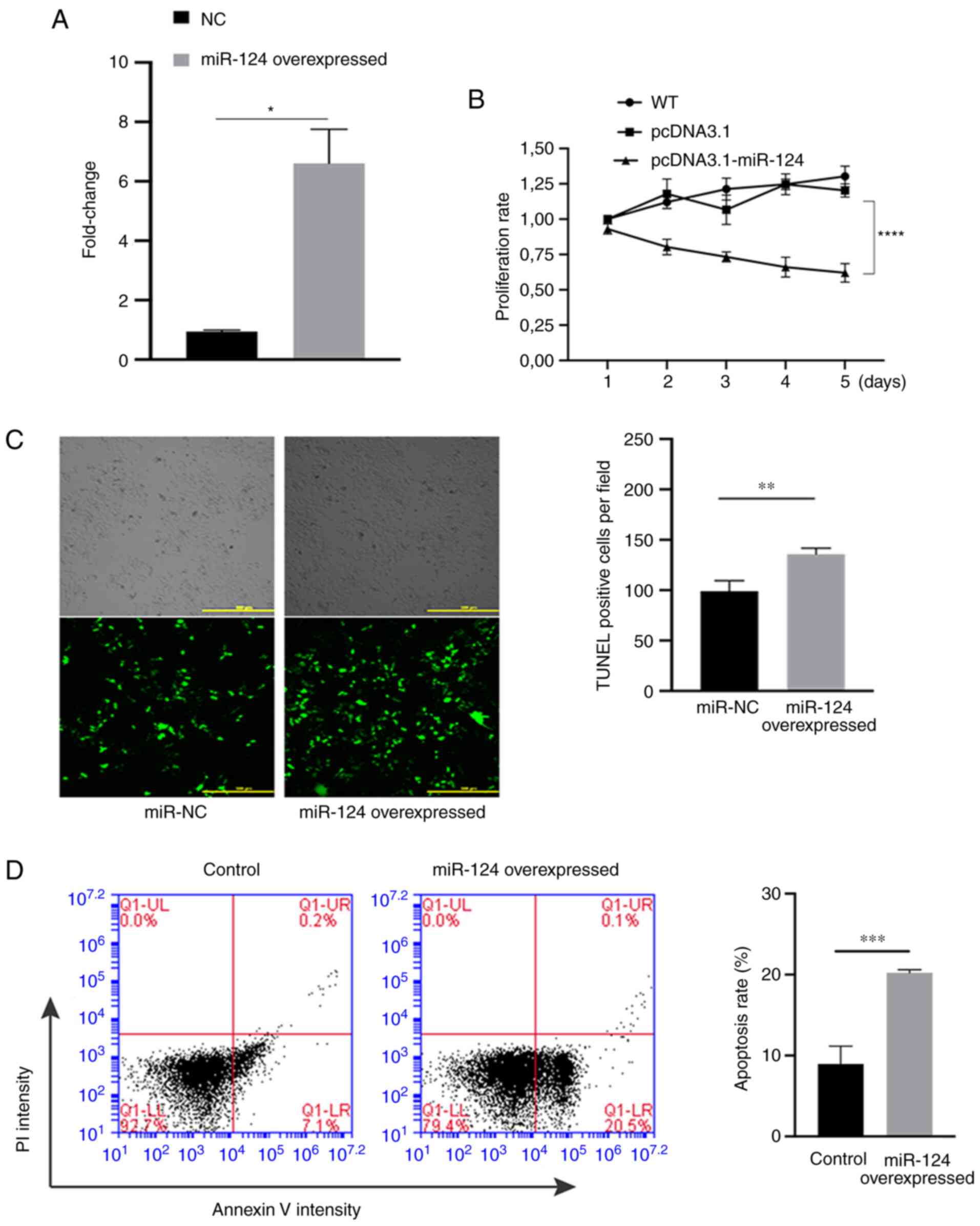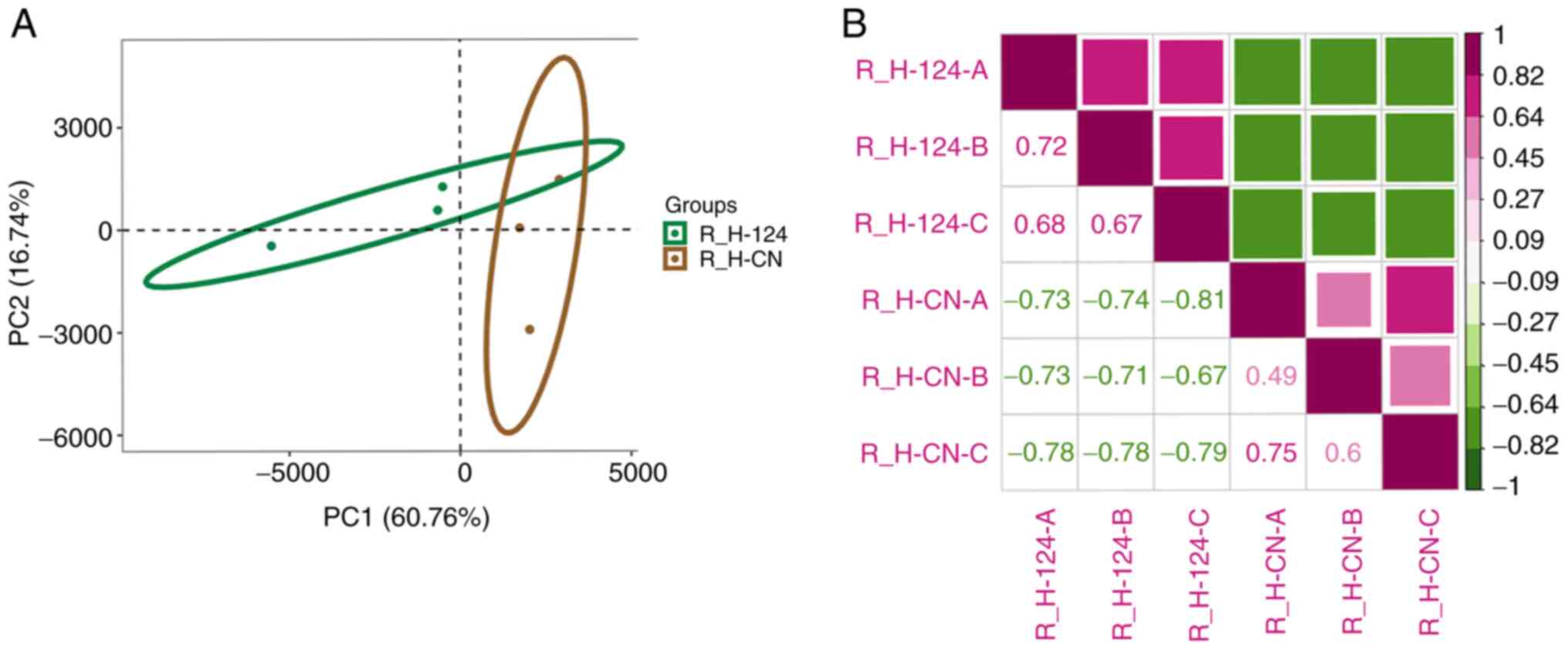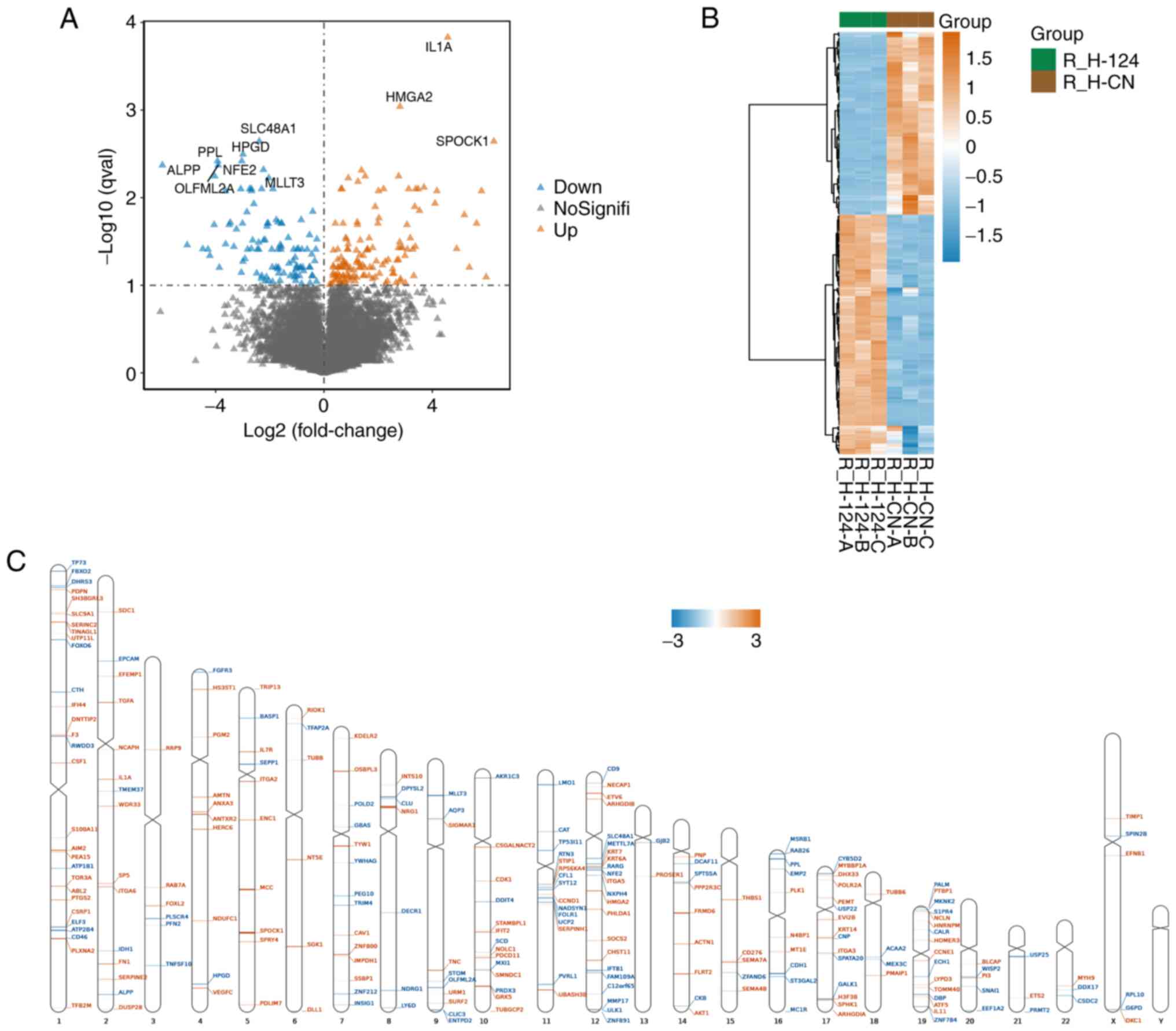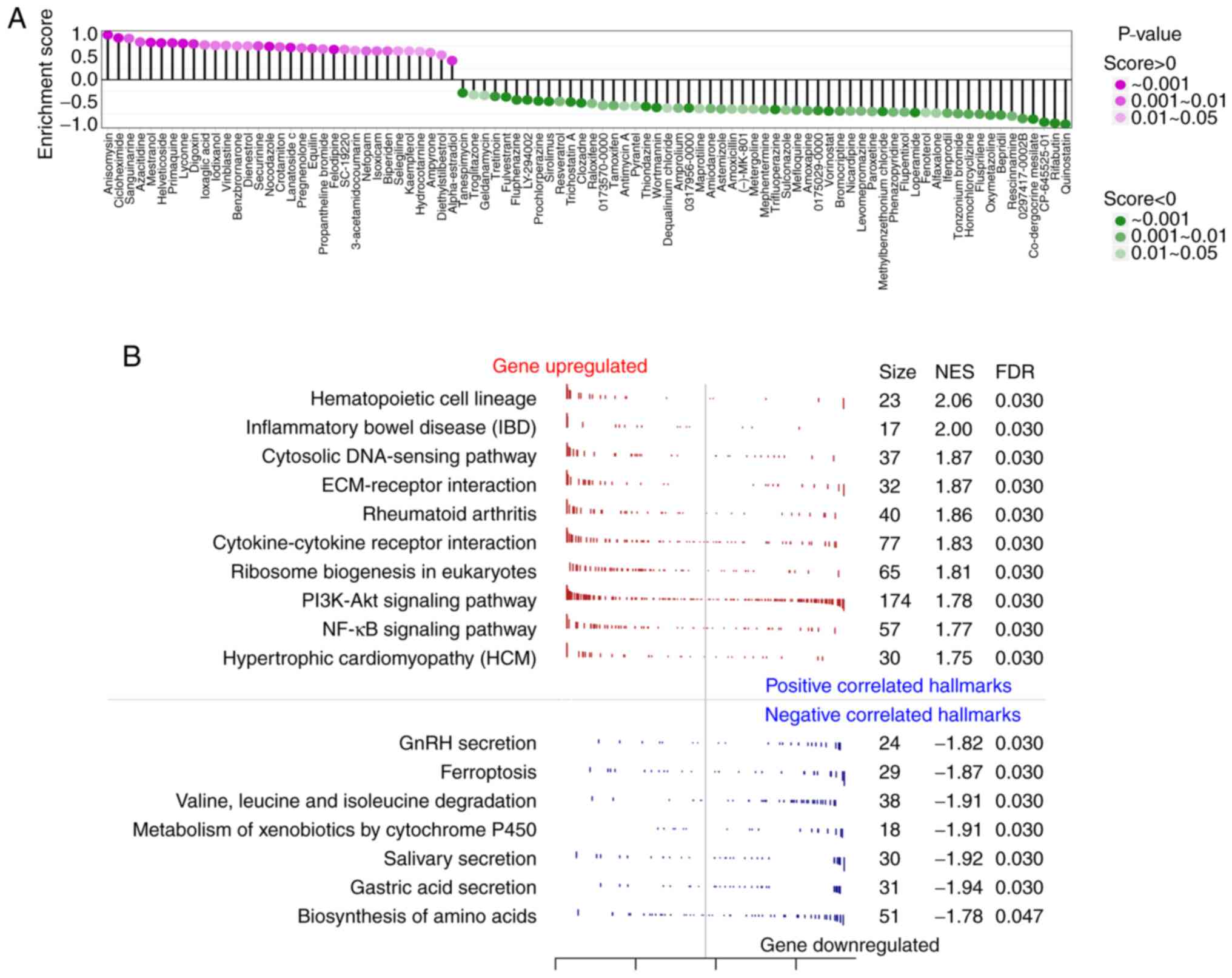|
1
|
Arora S, Stouffer GA, Kucharska-Newton AM,
Qamar A, Vaduganathan M, Pandey A, Porterfield D, Blankstein R,
Rosamond WD, Bhatt DL and Caughey MC: Twenty year trends and sex
differences in young adults hospitalized with acute myocardial
infarction. Circulation. 139:1047–1056. 2019.PubMed/NCBI View Article : Google Scholar
|
|
2
|
Libby P: Mechanisms of acute coronary
syndromes and their implications for therapy. N Engl J Med.
368:2004–2013. 2013.PubMed/NCBI View Article : Google Scholar
|
|
3
|
Ferro G, Duilio C, Spinelli L, Liucci GA,
Mazza F and Indolfi C: Relation between diastolic perfusion time
and coronary artery stenosis during stress-induced myocardial
ischemia. Circulation. 92:342–347. 1995.PubMed/NCBI View Article : Google Scholar
|
|
4
|
Martín Giménez VM, de Las Heras N, Ferder
L, Lahera V, Reiter RJ and Manucha W: Potential effects of
melatonin and micronutrients on mitochondrial dysfunction during a
cytokine storm typical of oxidative/inflammatory diseases.
Diseases. 9(30)2021.PubMed/NCBI View Article : Google Scholar
|
|
5
|
Musher DM, Abers MS and Corrales-Medina
VF: Acute infection and myocardial infarction. N Engl J Med.
380:171–176. 2019.PubMed/NCBI View Article : Google Scholar
|
|
6
|
Ardekani AM and Naeini MM: The role of
MicroRNAs in human diseases. Avicenna J Med Biotechnol. 2:161–179.
2010.PubMed/NCBI
|
|
7
|
Condrat CE, Thompson DC, Barbu MG, Bugnar
OL, Boboc A, Cretoiu D, Suciu N, Cretoiu SM and Voinea SC: MiRNAs
as biomarkers in disease: Latest findings regarding their role in
diagnosis and prognosis. Cells. 9(276)2020.PubMed/NCBI View Article : Google Scholar
|
|
8
|
Bartel DP: MicroRNAs: Target recognition
and regulatory functions. Cell. 136:215–233. 2009.PubMed/NCBI View Article : Google Scholar
|
|
9
|
Chen J and Wang DZ: MicroRNAs in
cardiovascular development. J Mol Cell Cardiol. 52:949–957.
2012.PubMed/NCBI View Article : Google Scholar
|
|
10
|
Silva DCPD, Carneiro FD, Almeida KC and
Fernandes-Santos C: Role of miRNAs on the pathophysiology of
cardiovascular diseases. Arq Bras Cardiol. 111:738–746.
2018.PubMed/NCBI View Article : Google Scholar
|
|
11
|
Luo F, Wu P, Chen J, Guo Y, Wang J, Li X
and Fang Z: ANGPTL3 possibly promotes cardiac angiogenesis through
improving proangiogenic ability of endothelial progenitor cells
after myocardial infarction. Lipids Health Dis.
17(184)2018.PubMed/NCBI View Article : Google Scholar
|
|
12
|
Su T and Shao X, Zhang X, Yang C and Shao
X: Value of circulating miRNA-1 detected within 3 h after the onset
of acute chest pain in the diagnosis and prognosis of acute
myocardial infarction. Int J Cardiol. 307:146–151. 2020.PubMed/NCBI View Article : Google Scholar
|
|
13
|
Pinchi E, Frati P, Aromatario M, Cipolloni
L, Fabbri M, La Russa R, Maiese A, Neri M, Santurro A, Scopetti M,
et al: MiR-1, miR-499 and miR-208 are sensitive markers to diagnose
sudden death due to early acute myocardial infarction. J Cell Mol
Med. 23:6005–6016. 2019.PubMed/NCBI View Article : Google Scholar
|
|
14
|
Yin Y, Lv L and Wang W: Expression of
miRNA-214 in the sera of elderly patients with acute myocardial
infarction and its effect on cardiomyocyte apoptosis. Exp Ther Med.
17:4657–4662. 2019.PubMed/NCBI View Article : Google Scholar
|
|
15
|
Yücel EI and Sahin M: Fenretinide reduces
angiogenesis by downregulating CDH5, FOXM1 and eNOS genes and
suppressing microRNA-10b. Mol Biol Rep. 47:1649–1658.
2020.PubMed/NCBI View Article : Google Scholar
|
|
16
|
Li X, Li Z, Zhu Y, Li Z, Yao L, Zhang L,
Yuan L, Shang Y, Liu J and Li C: MiR-524-5p inhibits angiogenesis
through targeting WNK1 in colon cancer cells. Am J Physiol
Gastrointest Liver Physiol. 318:G827–G839. 2020.PubMed/NCBI View Article : Google Scholar
|
|
17
|
Lei Z, Klasson TD, Brandt MM, van de Hoek
G, Logister I, Cheng C, Doevendans PA, Sluijter JPG and Giles RH:
Control of angiogenesis via a VHL/miR-212/132 axis. Cells.
9(1017)2020.PubMed/NCBI View Article : Google Scholar
|
|
18
|
Livak KJ and Schmittgen TD: Analysis of
relative gene expression data using real-time quantitative PCR and
the 2(-Delta Delta C(T)) method. Methods. 25:402–410.
2001.PubMed/NCBI View Article : Google Scholar
|
|
19
|
Blankenberg D, Gordon A, Von Kuster G,
Coraor N, Taylor J and Nekrutenko A: Galaxy Team. Manipulation of
FASTQ data with galaxy. Bioinformatics. 26:1783–1788.
2010.PubMed/NCBI View Article : Google Scholar
|
|
20
|
Trapnell C, Roberts A, Goff L, Pertea G,
Kim D, Kelley DR, Pimentel H, Salzberg SL, Rinn JL and Pachter L:
Differential gene and transcript expression analysis of RNA-seq
experiments with TopHat and cufflinks. Nat Protoc. 7:562–578.
2012.PubMed/NCBI View Article : Google Scholar
|
|
21
|
Bray NL, Pimentel H, Melsted P and Pachter
L: Near-optimal probabilistic RNA-seq quantification. Nat
Biotechnol. 34:525–527. 2016.PubMed/NCBI View
Article : Google Scholar
|
|
22
|
Pimentel H, Bray NL, Puente S, Melsted P
and Pachter L: Differential analysis of RNA-seq incorporating
quantification uncertainty. Nat Methods. 14:687–690.
2017.PubMed/NCBI View Article : Google Scholar
|
|
23
|
Love MI, Huber W and Anders S: Moderated
estimation of fold change and dispersion for RNA-seq data with
DESeq2. Genome Biol. 15(550)2014.PubMed/NCBI View Article : Google Scholar
|
|
24
|
Hao Z, Lv D, Ge Y, Shi J, Weijers D, Yu G
and Chen J: RIdeogram: Drawing SVG graphics to visualize and map
genome-wide data on the idiograms. PeerJ Comput Sci.
6(e251)2020.PubMed/NCBI View Article : Google Scholar
|
|
25
|
Yu G, Wang LG, Han Y and He QY:
ClusterProfiler: An R package for comparing biological themes among
gene clusters. OMICS. 16:284–287. 2012.PubMed/NCBI View Article : Google Scholar
|
|
26
|
Chai W, Wu Y, Li G, Cao W, Yang Z and Liu
Z: Activation of p38 mitogen-activated protein kinase abolishes
insulin-mediated myocardial protection against ischemia-reperfusion
injury. Am J Physiol Endocrinol Metab. 294:E183–E189.
2008.PubMed/NCBI View Article : Google Scholar
|
|
27
|
Han F, Chen Q, Su J, Zheng A, Chen K, Sun
S, Wu H, Jiang L, Xu X, Yang M, et al: MicroRNA-124 regulates
cardiomyocyte apoptosis and myocardial infarction through targeting
Dhcr24. J Mol Cell Cardiol. 132:178–188. 2019.PubMed/NCBI View Article : Google Scholar
|
|
28
|
Guo ML, Guo LL and Weng YQ: Implication of
peripheral blood miRNA-124 in predicting acute myocardial
infarction. Eur Rev Med Pharmacol Sci. 21:1054–1059.
2017.PubMed/NCBI
|
|
29
|
Lazar E, Benedek T, Korodi S, Rat N, Lo J
and Benedek I: Stem cell-derived exosomes-an emerging tool for
myocardial regeneration. World J Stem Cells. 10:106–115.
2018.PubMed/NCBI View Article : Google Scholar
|
|
30
|
Sondergaard C, Hess DA, Maxwell DJ,
Weinheimer C, Rosová I, Creer MH, Piwnica-Worms D, Kovacs A,
Pedersen L and Nolta JA: Human cord blood progenitors with high
aldehyde dehydrogenase activity improve vascular density in a model
of acute myocardial infarction. J Transl Med. 8(24)2010.PubMed/NCBI View Article : Google Scholar
|
|
31
|
Makeyev EV, Zhang J, Carrasco MA and
Maniatis T: The MicroRNA miR-124 promotes neuronal differentiation
by triggering brain-specific alternative Pre-mRNA splicing. Mol
Cell. 27:435–448. 2007.PubMed/NCBI View Article : Google Scholar
|
|
32
|
Angelopoulou E, Paudel YN and Piperi C:
MiR-124 and Parkinson's disease: A biomarker with therapeutic
potential. Pharmacol Res. 150(104515)2019.PubMed/NCBI View Article : Google Scholar
|
|
33
|
Sõber S, Laan M and Annilo T: MicroRNAs
miR-124 and miR-135a are potential regulators of the
mineralocorticoid receptor gene (NR3C2) expression. Biochem Biophys
Res Commun. 391:727–732. 2010.PubMed/NCBI View Article : Google Scholar
|
|
34
|
Hao Q, Zhang F, Wang Y, Li Y and Qi X:
Cardiac contractility modulation attenuates chronic heart failure
in a rabbit model via the PI3K/AKT pathway. Biomed Res Int.
2020(1625362)2020.PubMed/NCBI View Article : Google Scholar
|
|
35
|
Wang X, Chen L, Zhao X, Xiao L, Yi S, Kong
Y, Jiang Y and Zhang J: A cathelicidin-related antimicrobial
peptide suppresses cardiac hypertrophy induced by pressure overload
by regulating IGFR1/PI3K/AKT and TLR9/AMPKα. Cell Death Dis.
11(96)2020.PubMed/NCBI View Article : Google Scholar
|
|
36
|
Guo RX, Wei LH, Tu Z, Sun PM, Wang JL,
Zhao D, Li XP and Tang JM: 17 beta-estradiol activates PI3K/Akt
signaling pathway by estrogen receptor (ER)-dependent and
ER-independent mechanisms in endometrial cancer cells. J Steroid
Biochem Mol Biol. 99:9–18. 2006.PubMed/NCBI View Article : Google Scholar
|
|
37
|
Chen J, Zacharek A, Cui X, Shehadah A,
Jiang H, Roberts C, Lu M and Chopp M: Treatment of stroke with a
synthetic liver X receptor agonist, TO901317, promotes synaptic
plasticity and axonal regeneration in mice. J Cereb Blood Flow
Metab. 30:102–109. 2010.PubMed/NCBI View Article : Google Scholar
|
|
38
|
Zhou YH, Han QF, Gao L, Sun Y, Tang ZW,
Wang M, Wang W and Yao HC: HMGB1 protects the heart against
ischemia-reperfusion injury via PI3K/AkT pathway-mediated
upregulation of VEGF expression. Front Physiol.
10(1595)2020.PubMed/NCBI View Article : Google Scholar
|
|
39
|
Chen X, Wang R, Chen W, Lai L and Li Z:
Decoy receptor-3 regulates inflammation and apoptosis via PI3K/AKT
signaling pathway in coronary heart disease. Exp Ther Med.
17:2614–2622. 2019.PubMed/NCBI View Article : Google Scholar
|
|
40
|
Cheng S, Zhang X, Feng Q, Chen J, Shen L,
Yu P, Yang L, Chen D, Zhang H, Sun W and Chen X: Astragaloside IV
exerts angiogenesis and cardioprotection after myocardial
infarction via regulating PTEN/PI3K/Akt signaling pathway. Life
Sci. 227:82–93. 2019.PubMed/NCBI View Article : Google Scholar
|
|
41
|
Xing X, Guo S, Zhang G, Liu Y, Bi S, Wang
X and Lu Q: MiR-26a-5p protects against myocardial
ischemia/reperfusion injury by regulating the PTEN/PI3K/AKT
signaling pathway. Braz J Med Biol Res. 53(e9106)2020.PubMed/NCBI View Article : Google Scholar
|
|
42
|
Coco D and Leanza S: A review on aorta
mesenteric bypass in surgical management of mesenteric ischemia:
Indications, techniques and outcomes. Maedica (Bucur). 15:381–390.
2020.PubMed/NCBI View Article : Google Scholar
|
|
43
|
van der Laan AM, Piek JJ and van Royen N:
Targeting angiogenesis to restore the microcirculation after
reperfused MI. Nat Rev Cardiol. 6:515–523. 2009.PubMed/NCBI View Article : Google Scholar
|
|
44
|
Martini M, De Santis MC, Braccini L,
Gulluni F and Hirsch E: PI3K/AKT signaling pathway and cancer: An
updated review. Ann Med. 46:372–383. 2014.PubMed/NCBI View Article : Google Scholar
|
|
45
|
Gao N, Zhang Z, Jiang BH and Shi X: Role
of PI3K/AKT/mTOR signaling in the cell cycle progression of human
prostate cancer. Biochem Biophys Res Commun. 310:1124–1132.
2003.PubMed/NCBI View Article : Google Scholar
|
|
46
|
Zhu Y, Liu X, Zhao P, Zhao H, Gao W and
Wang L: Celastrol suppresses glioma vasculogenic mimicry formation
and angiogenesis by blocking the PI3K/Akt/mTOR signaling pathway.
Front Pharmacol. 11(25)2020.PubMed/NCBI View Article : Google Scholar
|
|
47
|
Zhou DM, Sun LL, Zhu J, Chen B, Li XQ and
Li WD: MiR-9 promotes angiogenesis of endothelial progenitor cell
to facilitate thrombi recanalization via targeting TRPM7 through
PI3K/Akt/autophagy pathway. J Cell Mol Med. 24:4624–4632.
2020.PubMed/NCBI View Article : Google Scholar
|
|
48
|
Peng H, Yang H, Xiang X and Li S:
ΜicroRNA-221 participates in cerebral ischemic stroke by modulating
endothelial cell function by regulating the PTEN/PI3K/AKT pathway.
Exp Ther Med. 19:443–450. 2020.PubMed/NCBI View Article : Google Scholar
|
|
49
|
Li Y, Xu Q, Shi M, Gan P, Huang Q, Wang A,
Tan G, Fang Y and Liao H: Low-level laser therapy induces human
umbilical vascular endothelial cell proliferation, migration and
tube formation through activating the PI3K/Akt signaling pathway.
Microvasc Res. 129(103959)2020.PubMed/NCBI View Article : Google Scholar
|
|
50
|
Niu X, Fan T, Li W, Xing W and Huang H:
The anti-inflammatory effects of sanguinarine and its modulation of
inflammatory mediators from peritoneal macrophages. Eur J
Pharmacol. 689:262–269. 2012.PubMed/NCBI View Article : Google Scholar
|
|
51
|
Yang J, Shamji A, Matchacheep S and
Schreiber SL: Identification of a small-molecule inhibitor of class
Ia PI3Ks with cell-based screening. Chem Biol. 14:371–377.
2007.PubMed/NCBI View Article : Google Scholar
|
|
52
|
Brughera M, Scampini G, Newman AJ,
Castellino S, Sammartini U and Mazué G: Overview of toxicological
data on rifabutin. Exp Toxicol Pathol. 47:1–9. 1995.PubMed/NCBI View Article : Google Scholar
|
|
53
|
Tiedemann RE, Schmidt J, Keats JJ, Shi CX,
Zhu YX, Palmer SE, Mao X, Schimmer AD and Stewart AK:
Identification of a potent natural triterpenoid inhibitor of
proteosome chymotrypsin-like activity and NF-kappaB with
antimyeloma activity in vitro and in vivo. Blood. 113:4027–4037.
2009.PubMed/NCBI View Article : Google Scholar
|















